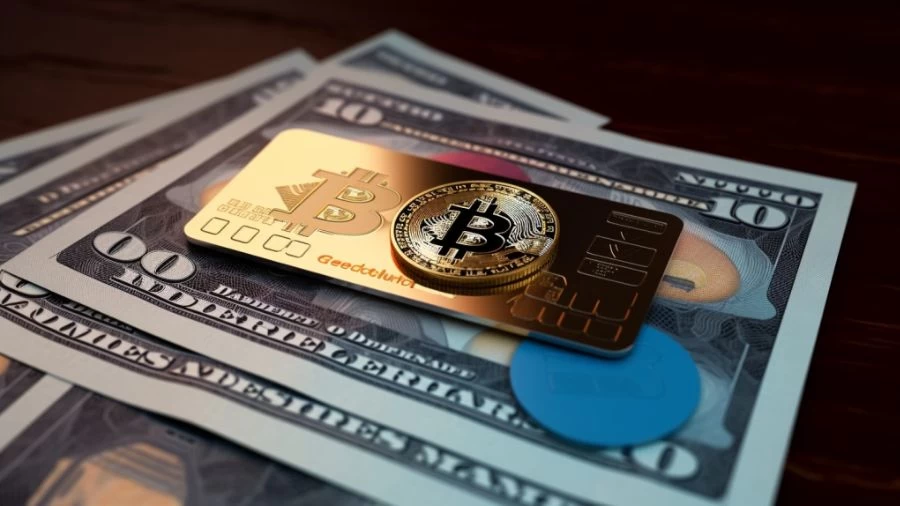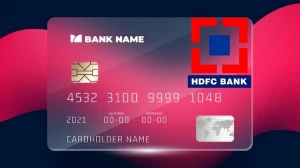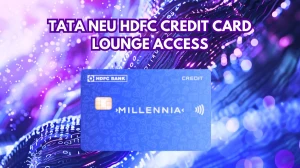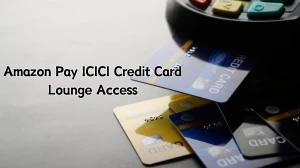
- Home »
- Credit Card »
- How to Buy Crypto with a Credit Card? Can You Buy Crypto with a Credit Card?
How to Buy Crypto with a Credit Card? Can You Buy Crypto with a Credit Card?
To buy crypto with a credit card, choose a supported credit card, select a reputable exchange like Binance, link your credit card, and complete the transaction to receive the crypto in your wallet.
Updated Nov 29, 2023
On This Page
Can You Buy Crypto With a Credit Card?
Yes, buying crypto with a credit card is feasible, offering users convenience and speed in contrast to slower methods like bank transfers or wallet transactions. However, it comes with financial risks and additional fees. While some users opt for credit cards for their crypto transactions, it's crucial to check with the card issuer and payment network for transaction approval, as some issuers may block crypto purchases due to concerns about fraud, losses, and market volatility.
Before engaging in any crypto transactions, it's advisable to verify your credit card's suitability with the issuer.
How to Buy Crypto With a Credit Card?
The process may vary slightly based on the exchange and credit card issuer, and users should exercise caution and conduct thorough examination before proceeding with credit card transactions for cryptocurrency purchases. To buy Bitcoin with a credit card, follow these steps,
Research the Credit Card
- Before proceeding, research credit cards to ensure they support Bitcoin purchases.
- Not all credit cards are compatible, so check with issuers like American Express, Mastercard, Visa, or SoFi.
- Each card may have unique fees, so understanding these charges is crucial.
Research the Exchange
- Explore cryptocurrency exchanges to find one that supports credit card purchases.
- Some exchanges may have restrictions or validation processes, impacting the speed of transactions.
- Popular exchanges like Binance, Kucoin, and Revolut are known to accept credit card payments.
Link the Credit Card
- After selecting a suitable exchange, verify your account by providing necessary personal information for KYC requirements.
- To proceed, link your credit card by entering details like your full name, card number, CVV, expiry date, and billing address.
Initiate the Purchase
- Once your account is verified and the credit card is linked, select the amount of Bitcoin you want to purchase.
- Choose the credit card payment option, and you'll be redirected to your bank’s OTP transaction page.
- Follow the instructions, complete the transaction, and, upon success, your Bitcoin will be deposited into your wallet.
What Other Methods are Available for Purchasing Cryptocurrency?
When considering alternative methods for purchasing cryptocurrency, users should assess factors such as fees, security, and the ease of use associated with each option. It's essential to choose a method that aligns with individual preferences and meets regulatory requirements.
Bitcoin ATMs
Bitcoin ATMs, also known as BTMs, provide a physical location for buying cryptocurrencies using cash or credit cards. Users can deposit funds and receive Bitcoin directly to their digital wallets. While Bitcoin ATMs may charge higher fees compared to online exchanges, they offer convenience for quick and direct transactions.
P2P Exchanges
Peer-to-peer (P2P) exchanges connect buyers and sellers directly, facilitating transactions without the need for intermediaries. Users can buy and sell cryptocurrencies with various payment methods, including bank transfers, digital wallets, and credit cards. P2P exchanges often provide a diverse range of options for users to choose their preferred payment methods.
Mainstream Brokerages
Some traditional financial brokerages have integrated cryptocurrency trading into their platforms. Investors can access a variety of cryptocurrencies through these brokerages, making it convenient to manage both traditional and digital assets in one place. While credit cards may not always be accepted directly, users can link bank accounts or use other payment methods.
PayPal
PayPal, a widely used online payment platform, has embraced cryptocurrency transactions. Users can buy, sell, and hold cryptocurrencies such as Bitcoin, Ethereum, and Litecoin directly through their PayPal accounts. While PayPal initially allowed purchases using credit cards, users should check for specific regulations and available options based on their region.
Marketshost is your trusted hub for in-depth markets knowledge, ensuring you're well-informed about the financial world.
What are the Pros and Cons of Using a Credit Card to Buy Cryptocurrency?
Credit cards offer accessibility and potential rewards for cryptocurrency purchases, but drawbacks include cash advance penalties, extra fees from exchanges, the risk of debt accumulation, potential impact on credit scores, and exposure to scams and foreign-exchange fees. Understanding these factors is crucial for informed decision-making in cryptocurrency investments.
Pros of Using a Credit Card for Cryptocurrency
- Credit cards offer a convenient way to invest in cryptocurrency, even without immediate cash, providing broader market access.
- Some credit cards may offer rewards or cashback for cryptocurrency transactions, serving as an additional incentive for users.
Cons of Using a Credit Card for Cryptocurrency
- Cryptocurrency purchases may incur cash advance penalties, including fees, higher APR, and the loss of a grace period, increasing overall costs.
- Cryptocurrency exchanges may impose additional fees for credit card transactions, contributing to the overall expense of acquiring cryptocurrencies.
- Failing to pay off the entire monthly credit card bill can lead to debt accumulation, especially risky in the volatile cryptocurrency market.
- High credit card balances from cryptocurrency purchases may negatively impact credit scores, affecting the credit utilization ratio.
- Users should be cautious about scams and foreign-exchange fees when using credit cards for cryptocurrency transactions.
What is Cryptocurrency?
Cryptocurrency is a digital or virtual form of currency that relies on cryptographic techniques for secure financial transactions, control the creation of new units, and verify the transfer of assets. Unlike traditional currencies issued by governments, cryptocurrencies operate on decentralized networks based on blockchain technology.
Bitcoin, the pioneering cryptocurrency, introduced the concept in 2009, and since then, numerous other cryptos, such as Ethereum and Ripple, have emerged. The appeal of cryptocurrencies lies in their decentralization, enabling peer-to-peer transactions without the need for intermediaries like banks, and the underlying blockchain technology ensures transparency, security, and immutability of transactions.
Crypto enthusiasts engage in activities like mining or trading to acquire and utilize these digital assets in various decentralized applications and smart contracts across the evolving landscape of the crypto market.
What are the Fees Cardholders Can Expect for Buying Crypto?
When cardholders buy crypto with their credit cards, they may face cash advance penalties from the card issuer. The credit card issuer often categorizes the crypto purchase as a cash advance, similar to withdrawing money from an ATM. This classification can lead to several disadvantages for the cardholder:
- Typically a one-time fee ranging from 3% to 5% of the transaction amount.
- Credit cards may impose a higher annual percentage rate (APR) for cash advances compared to regular purchases.
- Unlike regular purchases, cash advances don't have a grace period, and interest starts accruing from the transaction date.
- Some credit cards may have a separate, lower credit limit specifically for cash advances.
- If the credit card issuer views a crypto purchase as a cash equivalent, it may not qualify for rewards like cash back, travel points, or miles, and won't contribute to earning sign-up bonuses.
How to Buy Crypto With Credit Card - FAQs
1. Can I use any credit card to buy crypto?
It depends on your credit card issuer; not all credit cards permit cryptocurrency purchases.
2. Do I incur additional fees when buying crypto with a credit card?
Yes, potential fees include cash advance fees, higher interest rates, and transaction fees from the cryptocurrency exchange.
3. Are there credit cards specifically designed for crypto purchases?
Some credit cards offer features tailored to crypto, but not all issuers support these transactions.
4. Can I earn credit card rewards when buying crypto?
Not always; some credit card issuers may not consider crypto purchases eligible for rewards.
5. Are there alternatives to credit cards for buying crypto?
Yes, alternatives include bank transfers, peer-to-peer exchanges, Bitcoin ATMs, and payment platforms like PayPal.




